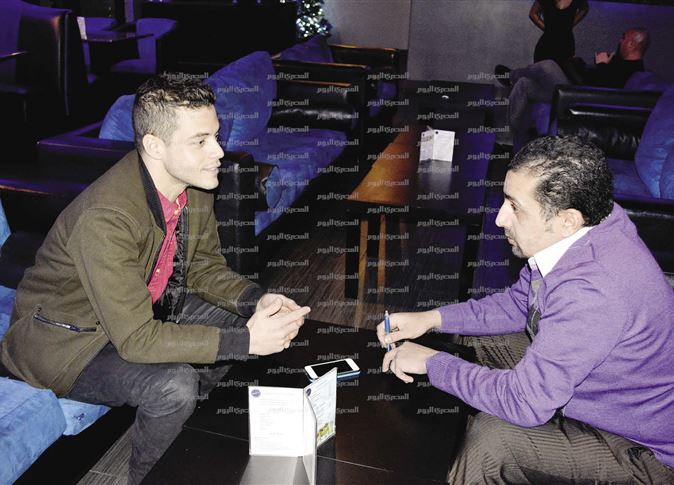
Rami Malek is a young Egyptian actor who has become successful in Hollywood. One of the many Arab stars to conquer world cinema, he played the pharaoh in "Night at the Museum" and the vampire in "The Twilight." He also co-starred in "Need for Speed" and "Mr. Robot."
Q: How was your start in acting?
A: It is a long story full of difficulties and frustration. I began to become conscious of my talent when I was a child, as I used to reenact scenes from films I had watched. Then I joined the school and the university theaters.
My parents did not want me to become an actor. They wanted me to be a lawyer or a doctor so that I achieve a good financial and social status. But because I am crazy and stubborn, as they would say, I chose to study fine arts and theater. After graduation, I sent my resume to production houses, but they never called me.
So I had to pick up small jobs like delivering pizza and making shawarma and falafel sandwiches in a place in Hollywood. I dreamed to work in its studios, not its restaurants.
A year and a half later, I received a call from a producer, who asked me who my manager was. When I told her that I did not have a manager, she told me to find one and call her.
Before she hung up, I told her that there was definitely something in my resume that made her call me. I asked her to see me first and then worry about a manger.
She liked the idea and told me to go see her the next day. I was accepted for a small role in the series called "Glamour Girls". This was in 2004. A year later, I played a role in "Over There" and "Medium" series.
Then I played the pharaoh in the film "Night at the Museum" and got another role in "The Pacific", which won the Emmy Award. Later, I also played in "The Twilight", "Need for Speed" and "Mr. Robot".
Q: But where are the difficulties and frustrations in what you have just said?
A: Maybe because I just gave you the short version. But there were times when I was depressed and started losing confidence, especially when I did not receive any responses for the many resumes I sent out. Also, working in a falafel shop when I have a university degree was not easy.
Q: You played a pharaoh, an Egyptian vampire and an Arab terrorist. Do you feel confined by being offered to play such characters?
A: No. Those were the roles that have gained worldwide fame. But I also played a young man from New York who quit his job to do the thing he liked in "Need for Speed," and a warrior in "The Pacific". Still, I would not decline roles of Arab or Egyptian characters if I am offered them.
Q: Your first leading role was in "Mr. Robot," which was written by an Egyptian scriptwriter. What kind of character did you play?
A: A young man living in New York who has problems communicating with others, but can make good software. He works in a security company to protect it against hacking. But he himself hacks the accounts of a group of evil people, which then attracts a group of hackers to use him to hack certain key figures and organizations that they believe are responsible for the corruption in society.
It is a complicated role that depicts the life of a generation that lives in an electronics-dominated world.
As for the scriptwriter being an Egyptian, I had no idea about it until after we started shooting.
Q: What do you think of the situation in Egypt?
A: I follow up on Egypt’s news regularly, and I have to say Egypt will win the battle against terrorism. I believe that the June 30 revolution saved Egypt from a civil war, and that President Abdel Fattah al-Sisi deals with Egyptians as equal citizens, regardless of their religion, which is the right thing to do.
Q: How do you see the role of Egyptian art at this stage?
A: Art plays an important role in shaping the awareness and culture of a people. It consolidates principles and events in a nation's memory, sometimes offering solutions to problems, other times not necessarily.
In the case of Egypt, the country is undergoing rapid change, which it would take time to recover from. Art can help reduce this period of time. It should shed light on the magnificent young people, who were willing to sacrifice their lives for their country to have a better future. It should promote the principles of tolerance and coexistence.
Q: Do you watch Egyptian films?
A: I used to watch them when I was young. Lately, I watched a documentary film called "Al-Midan" about the January 25 revolution. I wish the Cairo Film Festival would invite me to one of its sessions.
Edited translation from Al-Masry Al-Youm
